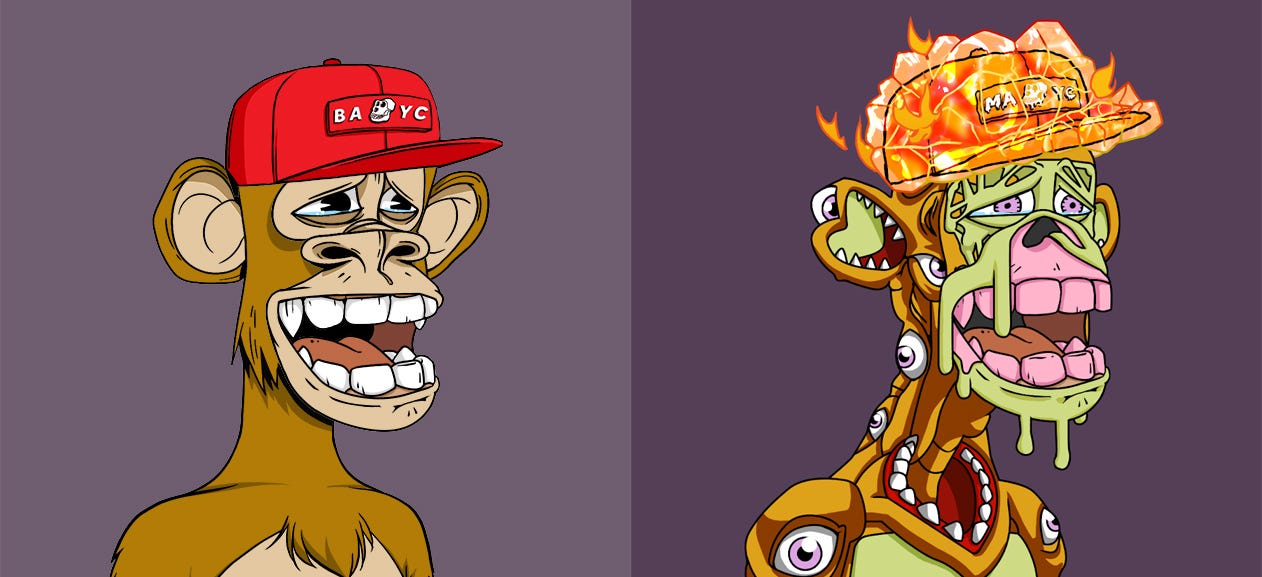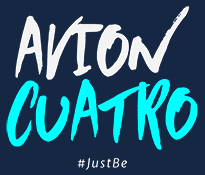By Daniel Van Boom
Whether you wanted to or not, you've probably seen a Bored Ape Yacht Club NFT. That's especially true if you're on Twitter, where owners of Bored Ape Yacht Club NFTs show them off as profile photos. Owners include Steph Curry, Post Malone and, most recently, Jimmy Fallon.
See that ape above with the striped T-shirt? That's Fallon's.
One of the most successful collections in the nonfungible token space, BAYC launched in April and consists of 10,000 Bored Apes. Right now the cheapest you can buy one for is 49 ether -- $208,000. They often sell for much more.
Like everything else to do with NFTs, the Bored Ape Yacht Club is contentious. Ape owners inspire jealousy among those who own and trade NFT art but confusion and suspicion among people who don't. Some of its success is about the art, but most of it isn't. Here's what you need to know about the collection.
There are 10,000?
Broadly speaking, there are two types of NFT art. First, you have one-off visual art pieces that are sold as NFTs, just like paintings in real life. Think the Beeple NFTs that were sold at Christie's auctions for as high as $69 million. Second, you have NFT collections, or "projects," like the Bored Ape Yacht Club. Kind of like Pokemon cards, these take a template and produce hundreds or thousands of variations, each ranked in terms of rarity. In the case of BAYC, there are 10,000 apes, each with different "properties" -- varying fur types, facial expressions, clothing, accessories and more.
These properties are displayed on OpenSea, the main platform where NFTs are traded. On any given NFT's page, its properties will be listed, as well as the percentage of NFTs in the collection that share that property. Usually, anything under 1% is considered rare. For example, take a look at the trio of apes at the top of the page. On the right you'll see one with a rare "Solid Gold" fur trait. Of 10,000 apes, only 46 have this property, making these 46 particularly valuable.
As noted, the "floor price" for the project -- what you'll pay for an ape with common traits -- is 52 ether. Apes with the golden fur trait are rare, so sell for much more. Last week someone bought one for 333 ether, or $1.36 million. One with gold fur and laser eyes, two sub-1% traits, went for $3 million two months ago.
BAYC is the second biggest NFT project of this kind, behind only CryptoPunks. CryptoPunks is a collection of 10,000 8-bit avatars created in 2017 and gets much of its value for being the OG NFT collection. The unremarkable ones sell for around 100 ether, or $500,000.
What makes Bored Ape Yacht Club valuable?
This is a complicated question. The short answer is that, as with real-world art, value is very much in the eye of the beholder.
Let's start at the beginning. Bored Ape Yacht Club was launched in late April by a team of four pseudonymous developers, Gargamel, Gordon Goner, Emperor Tomato Ketchup and No Sass. It took 12 hours for all 10,000 to sell out at a price of 0.08 ether, or around $190. As you can see in the price chart below (the price on the Y axis is in ether), the price grew steadily from April to July before rocketing in August.

What makes BAYC or any other NFT collection valuable is highly subjective. Broadly, it's a mix of three things. Influencer/celebrity involvement, community strength and utilities for members.
The first is obvious. When famous people own an NFT, it makes others want to own one too. The most recent example is Jimmy Fallon. The Tonight Show host bought a BAYC on Nov. 8 (for a cool $145,000) and has since been using it as a profile picture on Twitter, where he has 50 million followers. That's brought a flurry of hype and sales, which is reflected in the sales volume and price rise you can see on the right of the above chart.
Second, utility. Most NFT projects claim to offer a utility of some sort, be it access to play-to-earn games or the option to stake an NFT in exchange for an associated cryptocurrency.
Bored Ape Yacht Club has done a few things to keep owners interested. First, it created the Bored Ape Kennel Club, offering owners the opportunity to "adopt" a dog NFT with traits that mimic those of the Bored Apes. In August came another freebie: digital vials of mutant serum. Owners could mix their Bored Ape with the serum to create another NFT -- a Mutant Ape. Both Kennel Club and Mutant Ape NFTs sell for a lot, with floor prices of around $14,000 and $26,000, respectively.

A Bored Ape and its Mutant Ape counterpart.
Yuga LabsLast and most important is the community that's built around a collection. Bored Ape Yacht Club has organized meetups in New York and California and there have been Bored Ape get-togethers in Hong Kong and the UK, too. Most recently, a weekend of festivities for owners was held in New York, featuring an actual yacht party and a concert that featured appearances from Chris Rock, Aziz Ansari and The Strokes.
Of course, there's a business aspect to developing a community. Art of any kind is worth only as much as people are willing to pay for it. In an NFT collection, the floor price is essentially equal to what the least-invested members are willing to sell for. People believing they're holding a token into a community results in fewer people listing their apes for sale. Selling your ape isn't just selling an NFT, but a community pass too.
Plus, once a collection reaches a certain level of value, it becomes a status symbol. People in the cryptocurrency and NFT space use profile pictures for Twitter, Discord and other platforms like chief executives wear Rolexes. You can download a JPG of a Bored Ape just like you can wear a $10 Rolex knockoff. In both cases, though, people will know.
What's next?
After the star-studded New York party, the next member-only benefit for Bored Ape and Mutant Ape owners is an upcoming mobile game. Details are sparse, other than the fact that the game will only be available for 10 days and there are likely to be prizes that are eye-watering in value.
More unusual, though, is what people are doing with their apes. Owning a Bored Ape NFT gives you full commercial rights to it, and holders are taking advantage of that in some creative ways. One Bored Ape owner set up a Twitter account for his ape where he created a backstory, turning him into Jenkins, a valet that works for the Yacht Club. In September, Jenkins was signed to an actual real-world agency. He's getting his own biography -- written in part by New York Times bestseller Neil Strauss. Universal Music Group has invested by signing a band consisting of three Bored Apes and one Mutant Ape.
You might think NFTs are silly -- and terrible for the environment -- but don't expect the Bored Apes to disappear anytime soon.
Original article: https://www.cnet.com/how-to/bored-ape-yacht-club-the-popular-nft-collection-explained/

Leave a comment